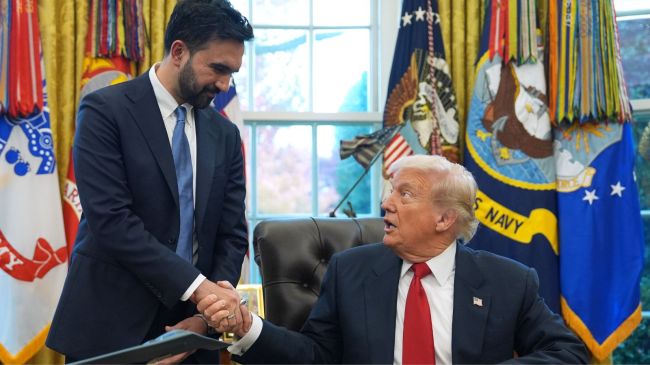
The American Delegation and Managing the Ceasefire’s Repercussions
The U.S. administration has an interest in showing it can succeed and market Trump as a peacemaker capable of implementing interim or final settlements in several regions across the cross-border conflict zones of the map of international politics.
He has succeeded in enforcing a ceasefire on both sides of the conflict — the Israeli colony and Hamas. Therefore, his administration is working to complete what is required, remove obstacles and address their lingering effects and repercussions in order to achieve a breakthrough in the situation, thus paving the way for the second phase.
The U.S. administration's delegation visit to the colony's government stems from its awareness that obstacles lie with Benjamin Netanyahu's team, which has no interest in the ceasefire nor in the success of the American plan. There are two reasons for this: First, the plan clashes with the extreme ideological mindset of the ruling team in the colony that seeks to eliminate and liquidate the Palestinian resistance; second, this team works to reduce the Palestinian human presence in the Gaza Strip and throughout Palestine. Additionally, the American position conflicts with the stance of Israeli Defense Minister Israel Katz and Chief of the General Staff of the Israel Defense Forces Eyal Zamir who favor continuing the war to avoid failure and defeat.
Trump's administration rescued Netanyahu's government from failure when Israel couldn’t achieve its objectives by invading the Gaza Strip. It shifted the focus of the confrontation from the armed military clash and the entanglement of the colony's army in occupying the Gaza Strip — where it would have been an easy target for painful blows from the armed resistance — to the current prevailing political confrontation. This shift occurred despite the ongoing attacks and strikes by Israeli forces in the Gaza Strip based on various pretexts and excuses, with their true motives being to prolong the war, to avoid implementation of the ceasefire, and ultimately to prevent a withdrawal from the Gaza Strip.
U.S. administrations, whether Trump’s current leadership or previous governments, work to protect, strengthen and establish this colony as the dominant power in the Arab East. This is what Trump's administration has accomplished, and it continues to be its goal. Both Washington and the colony have an interest in this relationship. Without American support, Tel Aviv would not be able to survive, endure, continue the war or maintain superiority over the countries of the Arab East. The United States, in turn, has an interest in keeping Israel dominant because it best serves U.S. strategic interests in the Arab region.
The American delegation, no matter what obstacles or difficulties it encounters, will not return to Washington without having achieved its demands, regardless of political costs. It represents the party closest to Netanyahu’s government and is most capable of kicking him in the pants to comply. This is especially true since Hamas is responsive to aligning with American directions, heeding the advice of its allies, Qatar and Turkey. Moreover, it has an interest in maintaining its political role, even if the price is high.

